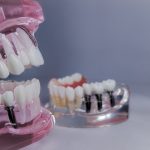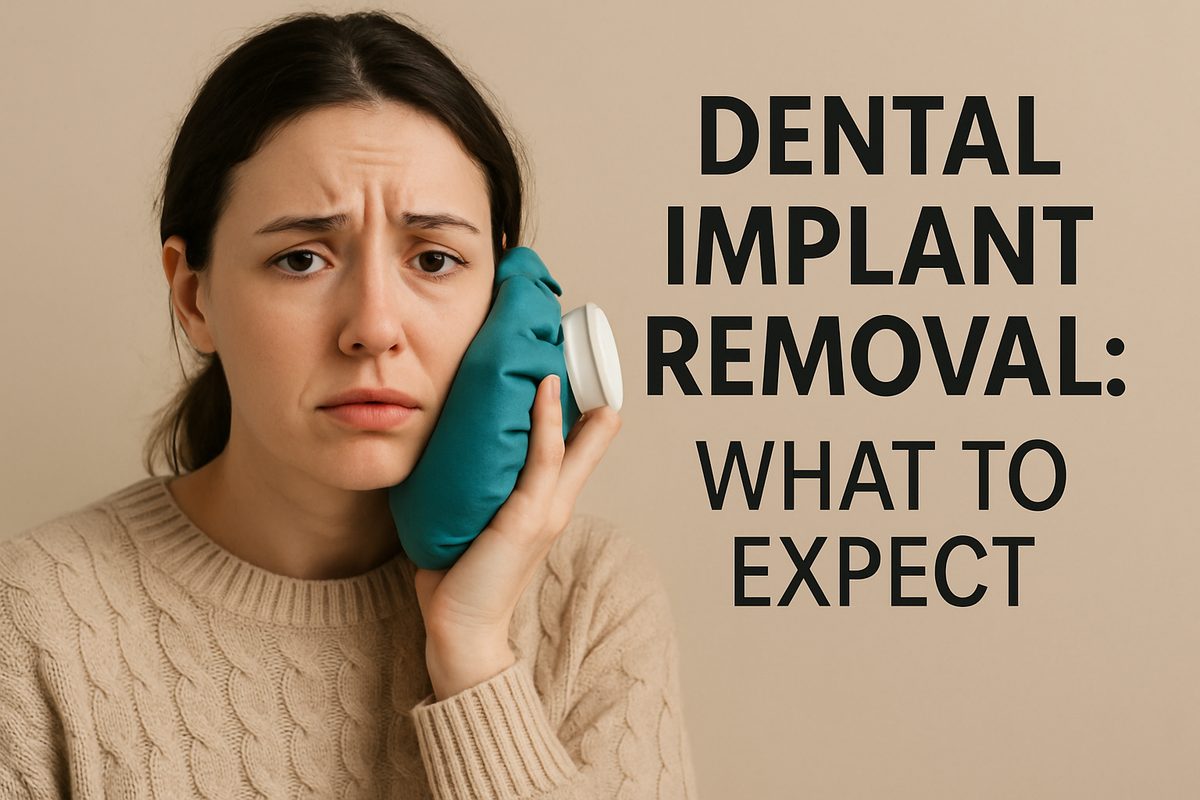Dental implant removal side effects can range from mild and expected to rare but serious. This article explains what to expect after implant removal, which symptoms are normal, and which signs need urgent care. Knowing the difference helps you recover safely and get help when needed.
What Happens During Dental Implant Removal
Implants are removed for infection, mechanical failure, fracture, or cosmetic/prosthetic reasons. The procedure can be simple or require surgery. Your dentist will numb the area, loosen or expose the implant, and remove it. Sometimes bone grafting or sutures are placed afterward. The goal is to clear the problem and prepare the site for healing or future replacement.
Common dental implant removal side effects
Pain and soreness
Mild to moderate pain is normal for 48–72 hours. It usually improves each day. Over-the-counter ibuprofen or acetaminophen often controls it; follow dosing directions. If prescription pain medicine was given, use it only as directed.
Swelling and bruising
Swelling typically peaks 24–72 hours after the procedure and then slowly improves. Apply ice to the cheek for 15–20 minutes at a time during the first 24 hours. Sleep with your head elevated to reduce swelling.
Bleeding and oozing
Light bleeding or oozing is common for the first 12–24 hours. Bite on gauze for 20–30 minutes to control bleeding. Avoid spitting, using straws, or vigorous rinsing for the first day, as these actions can reopen the site.
Temporary numbness or altered sensation
Nerve irritation or local anesthesia can cause numbness or tingling. This often improves over days to weeks. If numbness persists beyond a few weeks or worsens, contact your dentist.
Less common but possible side effects
Infection, delayed healing, sinus communication for upper implants, and localized bone loss can occur. These are less common but may need additional treatment like antibiotics, grafting, or sinus repair.
Serious dental implant removal side effects: when to seek urgent care
Seek urgent care if you have uncontrolled bleeding, a high fever, severe increasing pain, rapidly spreading swelling, persistent numbness, red streaks or swollen lymph nodes, or signs of spreading infection. These signs may require emergency treatment or antibiotics.
Self-care and at-home recovery tips after implant removal
Take pain meds as directed. Rinse gently with salt water after 24 hours to keep the area clean. Stick to soft foods for several days. Avoid smoking and heavy exercise for at least a week. Only use antibiotics or other drugs if your dentist prescribes them.
How your dentist will monitor healing
Typical follow-ups occur within 1 week, then as needed until the site is stable. X-rays or scans check bone and soft tissue. Your dentist will decide if the implant can be replaced later or if other options (bridge, dentures, full-arch solutions) are better.
How to lower the risk of complications next time
Good daily oral hygiene, treating gum disease before implant work, quitting smoking, and following pre- and post-op instructions all lower risks. Ask your dentist about planning and technology that improve accuracy and outcomes.
Short FAQs
– How long until I feel normal? Most people feel much better in 3–7 days; full recovery can take weeks. – Can the implant be replaced immediately? Sometimes, but often the site needs to heal. Your dentist will assess bone and tissue health. – Will insurance cover removal? Coverage varies; check your plan and ask your dental office for help with estimates.
About Troy Family Dental
Troy Family Dental in Troy, IL offers implant-focused care with advanced tools like Yomi robotic guidance, TeethXpress, and digital imaging. Our doctors have deep implant and surgical experience and focus on safe, comfortable care for patients facing implant removal or replacement.
Closing CTA
If you suspect complications or need help after an implant removal, contact Troy Family Dental for an evaluation. We can review your symptoms, monitor healing, and recommend the safest next steps.






